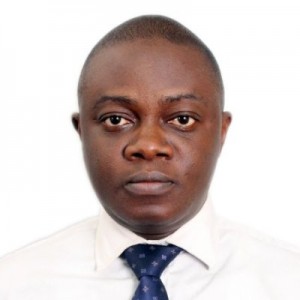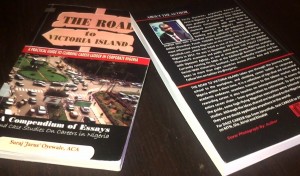THE MODERN CAREER: BETWEEN A TENNIS PLAYER & AN ORCHESTRA CONDUCTOR

David Adeoye, CFA
David is the Team Lead, Transaction Advisory Services, MBC Capital Limited
As I consider our current world of work, it appears that business careers are fast moving away from what looked like a tennis career to that of an orchestra conductor.
The tennis player learns and plays the same game from childhood to middle age. At a point he/she becomes “seeded” or ranked relative to peers who play that same game. As her game improves and results begin to roll in, she becomes a single-digit seed. Then with some staying power and enough victories over other top seeded players, she may become world number 1.
The orchestra conductor, on the other hand, begins by learning the rudiments of music (let’s call this business 101). He may learn to play a few musical instruments but probably never becomes ‘seeded’ or world best in any of them, in contrast to the tennis player. Yet his work is never less demanding.
He puts in loads of hours seeking to understand, appreciate, and demand what makes quality output from individual instruments and vocals. Yet he still has to focus on the big picture. How the entire piece of music is delivered.
His value grows as the length and complexity of the musical piece as well as his stage changes. Like the tennis player, he seeks to become world renown but in a different sense. He needs to get on the best of orchestra available. To him, the orchestra he leads, the stage on which he performs and the performance itself are vital.
To achieve results, he depends less on repeating the same things he did well in the past. He has to develop the habit of keen listening, focus, imagination, sensitivity to his audience, and very importantly, coordination among well over a dozen instruments and sets of vocalists. Yet he’s seeking to deliver a performance that will stay in the minds of the audience as valuable.
In many emerging markets some 20 years ago, it was okay to be a chartered accountant with a good degree. You may as well have bought your ticket for a flight to the top. Also a few years in BIG 4 accounting firm, or a top consulting firm, a large law firm could mean you’re made for many years to come. Today, the market is different. We all need not just dexterity in one or two areas but a combination of knowledge, skills and competencies that will give breadth (reach) and meaning (value) to our work in and beyond those areas where we already have depth (skill).
It’s not a time to be discouraged because things are not looking up despite all you have done. Rather it’s a good time to ask yourself: given what I already have (experience, education, etc.) and what I’ve done so far, what else do I need to do (a new competency? a foreign language? a business degree? a new industry? a new offering?) that can strengthen my position in the market. Whichever option you take, like both the tennis player and the orchestra conductor, the investment of quality time and effort will have no substitute. Yes, the hours must go in, or you’re not going to go far.
While the hard-work and focus of the tennis player remains valuable, it’s equivalence in the business world is unlikely to be sufficient to create the top-quality performance or elevation for which a person can expect to be rewarded even in retirement.
Yet like the orchestra conductor, there needs to be a harmony, some common thread, and unison as different parts of the piece come together to create a valuable whole. Friends, it’s not too late to take a different view.
Follow me on twitter: @fritova
For more articles on careers and mentorship, subscribe free to JarusHub
[subscribe2]
Established in March 2013, JarusHub is a Nigerian information hub with focus on career and management. It is rated Nigeria's most authoritative destination for online career resources. It parades an array of Nigerian professionals who share their career experiences with a view to bridging career information gap and mentoring a generation to success. JarusHub has revolutionised career information and experience sharing in Africa. Whether you're a student, a recent graduate or an established professional, or even an executive, you will always find something to learn on JarusHub. All enquiries to jarushub@gmail.com or 0808 540 4500. Facebook: www.facebook.com/jarushub; Twitter: @jarushub or @mcjarus.
Career Q&A with Jarus: Oil & gas career, poor CGPA
September 17, 2023What is Career Counselling? How to choose the Right Career?
October 24, 2022Career Advice: Play to Your Strength
March 6, 2022
Let us have your say by leaving a comment belowCancel reply
Recommended For You
-
Hepatitis and Company Employment in Nigeria
January 7, 2014 -
Admission Ongoing at University of Offa, Kwara State
July 8, 2021








